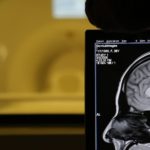Cardiovascular exercises have already been proven in research studies to promote a better lifestyle and improve mental wellness. For example, research published in the medical journal Mayo Clinic Proceedings, expands on its effectiveness, suggesting that cardiorespiratory workouts may benefit brain regions associated with cognitive decline.
Between June 2008 and September 2012, researchers evaluated 2,103 adult participants ranging in age from 21 to 84 years old as part of two population-based cohorts. The researchers looked at two sections in the study: gray matter and total volume, to see whether there were any correlations between cardio-exercise and cognitive performance.
The participants were asked to do cardiorespiratory exercise regimens on a stationary bike while researchers monitored peak oxygen consumption. Following that, MRI brain scans were performed. The findings, according to the researchers, suggest that cardiorespiratory fitness (CRF) exercises are advantageous for cognitive health. When the efficaciousness of the workout routines was examined, it was shown that enhanced peak oxygen uptake was connected with larger gray matter volume.
“Cardiorespiratory fitness was positively associated with gray matter (GM) volume, total brain volume, and specific GM and white matter clusters in brain areas not primarily involved in movement processing,” the author determined. “These results, from a representative population sample, suggest that CRF might contribute to improved brain health and might, therefore, decelerate pathology-specific GM decrease.”
In spite of all of the research on cardiorespiratory fitness and brain health, we know there are a number of ways in which such exercises can be beneficial for brain health. I’ve listed just a few ways below:
Improved Cognitive Function: Cardiorespiratory activities boost the delivery of oxygen and nutrients to the brain by increasing blood flow to it. This has the potential to improve cognitive abilities like memory, focus, and problem-solving techniques. Frequent aerobic exercise has been associated with faster reaction times and improved performance on activities requiring executive function.
Neurogenesis: The synthesis of the protein brain-derived neurotrophic factor (BDNF), which promotes the development and survival of neurons, is boosted by physical activity. Higher BDNF levels encourage neurogenesis, or the growth of new neurons, especially in the hippocampus, a region of the brain essential for memory and learning.
Better Mood and Mental Health: By encouraging the release of endorphins, serotonin, and other neurotransmitters that elevate mood and foster a sense of wellbeing, frequent cardiorespiratory exercise helps lessen the symptoms of anxiety and sadness. Additionally, exercise helps lower stress levels and improve mental health by regulating the stress hormone cortisol.
Improved Sleep: Both the length and quality of sleep can be enhanced by regular aerobic activity. Since it enables the maintenance of general cognitive function, the consolidation of memories, and the removal of metabolic waste from the brain, sleep is crucial for brain health. A better night’s sleep can also lift your spirits and lessen depressive and anxious symptoms.


